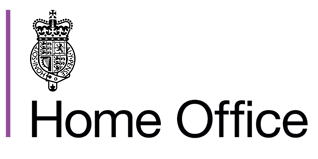PRESS RELEASE : More action to fight fraud, bribery and other economic crime [June 2023]
The press release issued by the Home Office on 15 June 2023.
Plans have been submitted to modernise the identification doctrine, a legal principle which can hold corporations criminally liable for an offence.
Businesses who commit fraud, money laundering and bribery will be subject to stricter scrutiny under new Home Office plans.
The government has collaborated with prosecutors, the Law Commission, and the private sector to introduce the biggest reform of the identification doctrine – legislation used to hold companies criminally liable for offences – in more than 50 years.
Under the proposal, added to the Economic Crime and Corporate Transparency Bill today, senior managers will be brought within scope of who can be considered the ‘directing mind and will’ of a business. It means if they commit an economic crime, the company can also be held criminally liable and fined for the offence.
Security Minister Tom Tugendhat said:
Alongside our new Failure to Prevent Fraud Offence, these measures demonstrate our commitment to improved transparency.
We will ensure that those responsible for economic crime, whether individuals or companies, can be brought to justice.
The identification doctrine is a principle used to hold companies criminally accountable for the actions of its ‘directing mind and will’.
This has generally been interpreted to be a member of the board, such as chief executives, but complex management structures can conceal who key decision makers are.
For example, a recent multi-billion-pound fraud trial determined a banking group’s chief executive and chief financial officer could not be viewed as the company’s ‘directing mind’. This has left prosecutors with a very high bar to prove who fits the criteria.
Senior executives often possess a huge amount of influence and autonomy but cannot currently be considered a part of the ‘directing mind’.
Minister for Enterprise, Markets and Small Business Kevin Hollinrake said:
This reform will help small business owners play on a level playing field with corporate giants, whilst holding larger companies to account for committing economic crimes.
We stand firm in striking the right balance between the need to tackle economic crime whilst keeping burdens for the law-abiding majority low.
The move is another tool that can be used in the government’s robust plan to fight fraud. This includes the recent publication of the Fraud Strategy, which sets out how the government will work with law enforcement, and the private sector, to block scams at source, bring offenders to justice, shut down fraudulent infrastructure and ensure the public have the support they need.
It also builds on recommendations made by the Law Commission and feedback received from prosecutors and business groups. The consensus from these engagements was the current regime does not effectively cover the way modern businesses are structured.
In practice, a test will be applied to consider the decision-making power of the senior manager who has committed an economic crime, rather than just their job title. The corporation may then be liable in its own right.
This will reduce the ability for corporations to use complex management structures to conceal who decision makers are and therefore level the playing field for businesses of all sizes.
Andrew Penhale, Chief Crown Prosecutor for the CPS, said:
The scale of fraud in the UK – which now comprises over 40% of all criminal activity – is so widespread that extra measures to help prevent it and protect people and organisations from falling victim to this crime is a welcome step in tackling this type of offending.
The reform of the identification doctrine for economic crime is another important measure to drive better corporate behaviours and will further enhance the tools available to prosecutors.
We recognise and support the government’s commitment to legislate for identification doctrine reform across all crime types in the future.
Lisa Osofsky, Director of the Serious Fraud Office, said:
We have a mission to investigate and prosecute those responsible for fraud, bribery and corruption, but currently face a perverse situation where some companies have no liability for misconduct and no incentive to prevent it.
We welcome the range of measures introduced by this bill – including the expansion of our pre-investigation powers and the ‘failure to prevent fraud’ offence – which, together with a review of the disclosure regime, would strengthen our ability to hold corporate criminals to account.
An influential piece of legislation currently used to determine a ‘directing mind’ comes from a House of Lords ruling in 1971.
That case concluded a supermarket group was not liable for the actions of an individual store manager, who was selling washing powder for one shilling more than the advertised price. The store manager was not a part of the corporation’s ‘directing mind’ and the corporation was therefore not guilty.
Senior executives are, consequently, generally viewed within the same light as the store manager.
The government’s reform will reset the balance and ensure greater accountability.
The identification doctrine reform, which applies to economic crime only, is another major development in the government’s drive to reform corporate criminal liability. Another reform – the creation of the Failure to Prevent Fraud offence – was tabled in April.
The Failure to Prevent Fraud offence states that a large business must have measures in place to prevent fraud. If an employee commits fraud for the company’s benefit, the organisation could receive an unlimited fine unless it is able to prove it had adopted reasonable safeguards.
A list of these measures will be published by the government in due course.



